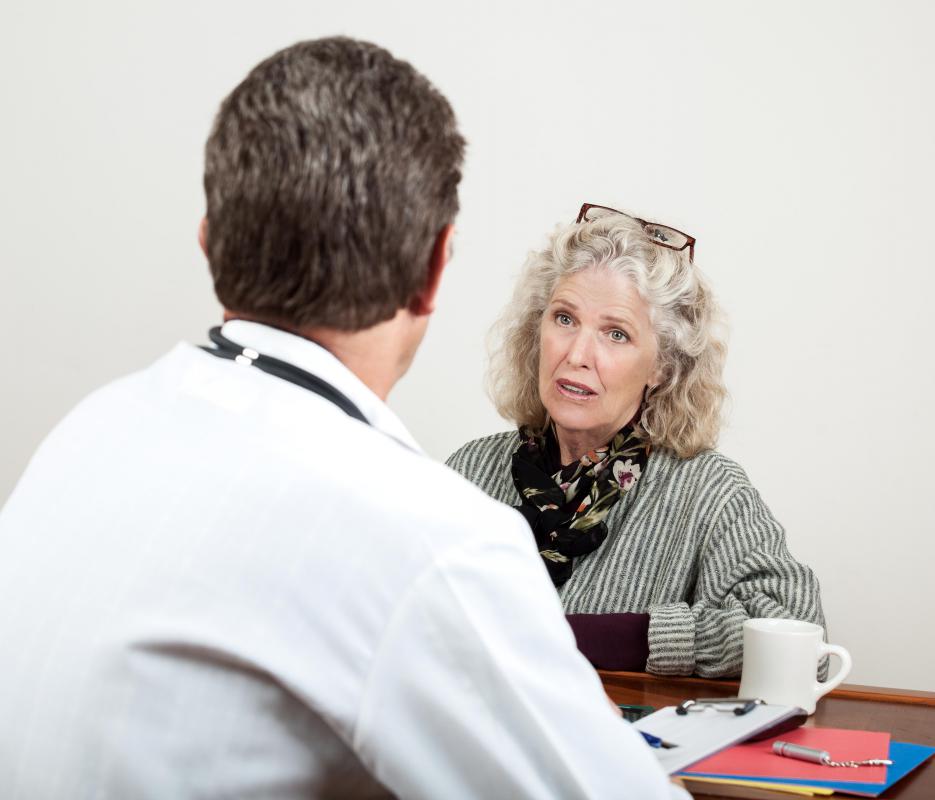At TheHealthBoard, we're committed to delivering accurate, trustworthy information. Our expert-authored content is rigorously fact-checked and sourced from credible authorities. Discover how we uphold the highest standards in providing you with reliable knowledge.
What are Causes of Spotting During Menopause?
Spotting during menopause can be defined as episodes of light bleeding that occur in the ten to fifteen years leading up to true menopause (perimenopause) or after complete cessation of menstrual periods many months. Generally, a few days of midcycle bleeding when periods are still ongoing is less concerning and may be due to a variety of factors, though frequent episodes of breakthrough bleeding should be reported to a gynecologist. Any type of bleeding after period cessation may indicate serious health concerns and should be discussed with a doctor.
One of the features of perimenopause is period irregularity, and fluctuations in hormone levels can lead to spotting. Women who have never noticed midcycle bleeding before may notice it occasionally or often, as hormone levels continue to decline. Sometimes the cause of spotting isn’t really related to the perimenopausal state. Use of birth control pills may result in it, intrauterine devices (IUDs) without hormones are associated with breakthrough bleeding, and early pregnancy could create this condition. Other potential causal factors include injuries to the vagina, stress, early miscarriage, hypothyroidism, infections of the vagina, ovulation, polyps, fibroids, and some forms of cancer.

When periods have ceased for at least six to nine months, spotting during menopause is treated differently. True menopause is typically defined as a full year of period cessation, but several months of absence of periods and is usually considered menopause instead of perimenopause. The causes for spotting during menopause can occasionally be more medically concerning and require medical scrutiny earlier.

One of the biggest concerns about spotting during menopause is that the condition is caused by cervical or uterine cancer. The risk for reproductive tract cancers increases as women age. Examination and biopsy, if necessary, can help rule these out. Precancerous lesions like polyps, which are associated with light bleeding, can also be detected during exams. Another potential pre-cancerous state occurs if the endometrial lining of the uterus thickens.

While risk of cancer means spotting during menopause should be immediately reported, an exam may not reveal a serious problem. A very common cause of occasional bleeding is related to treatment for menopause. When women use hormone replacement therapy, this can result in light bleeding at times. Alternately, the vaginal dryness that may accompany decline in hormone levels can result in vaginal irritation and slight bleeding, especially from activities like intercourse. Using lubricants can help reduce risk of sexual injury.

Other causes of spotting during menopause include vaginal infections, stress, hypothyroidism, and presence of fibroids. Any episode of heavier bleeding is also a considerable concern, and relatively rare. This should be treated as extremely unusual and women should get medical treatment right away.
AS FEATURED ON:
AS FEATURED ON:

















Discuss this Article
Post your comments